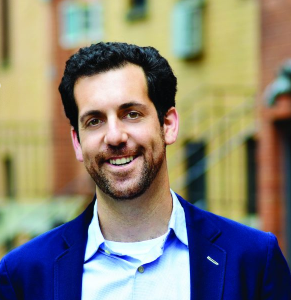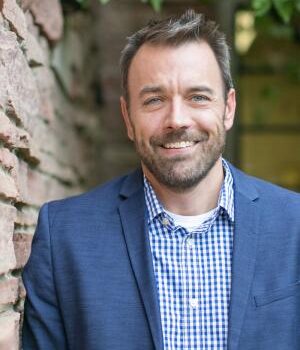In April 2021, a Zimbabwean magistrate sentenced Makomborero “Mako” Haruzivishe, a 28-year old former Secretary General of the Zimbabwe National Students Union, to 14 months in prison for inciting violence and violating COVID-19 restrictions. Mako is a renowned activist who has protested the increasingly authoritarian policies imposed by the Zimbabwean government, which is desperately trying to retain power despite a rapidly deteriorating economy. Youth activists asserted that the state used Mako’s imprisonment to intimidate protestors. After his arrest, they started a social media campaign, #FreeMako, which led to further protests around the country and gained traction throughout the world. Partially due to this pressure, Mako was released on bail after ten months. Zimbabwean activists say they will push on against state oppression.
Mako’s story demonstrates both the necessity of youth activism at this moment and the challenges facing young organizers. Youth movements are on the rise in Africa and around the world. Students in over 150 countries have organized school walk-outs demanding real climate action. Last year, young people in Hong Kong took to the streets demanding a say in their country’s future. In the wake of the 2021 coup in Myanmar, young people put their lives on the line to protest the military usurping power and closing civic spaces. And in Chile, a movement that began with young people demanding more affordable public education reached the highest echelons of political office; voters recently elected former student organizer Gabriel Boric as president at the age of 35. These are just a few examples of how young people are refusing to accept a status quo characterized by economic inequality, government repression and corruption, and climate chaos, among other urgent issues affecting people around the world.
At the same time, we are wary of the tendency to glorify young activists as “the future,” capable of saving democracy through their energy, enthusiasm, and idealism. Young people’s activism is no doubt inspiring and needed. But as antidemocratic sentiments sweep the globe and elites redouble their efforts to maintain power, energy and optimism will not be enough. Youth activists need new, creative playbooks in order to disrupt the democratic decay that has emerged globally and begin to re-imagine more equitable public institutions.
In this special series of The Forge — Democracy Moves: Youth Activism Through a Global Lens — we begin to sketch out what these new playbooks might look like. The series brings together youth activists from Bangladesh, Cameroon, Italy, Kenya, Mexico, Nigeria, the Philippines, Scotland, and Zambia to grapple with the precarious and critical moment we live in — a historically troubling time for democracy, human rights, and the rule of law around the world. The series examines the fundamental tension inherent to youth activism: young people are advocating for more equitable democracies even as they are increasingly distrustful of political institutions. We want to learn from how young people are tackling the challenges of closing civic spaces, increased corruption, and rampant and growing economic inequality in order to build a more equitable and democratic world.
All of the articles and interviews in this series raise pressing questions. How do we make sense of the upsurge of youth activism at a time when many governments continue to consolidate power? If young people participate in formal political processes, will their efforts be co-opted? Can they effect change outside dominant institutions?
We recognize our limitations in curating such a series: we are two white American academics and practitioners who — despite having spent time on the ground engaging with young people in countries such as Kenya, South Africa, Argentina, and Venezuela — look at youth activism through lenses shaped by our social positions and professional experiences in the United States, with its own traditions of civic engagement and activism. With this awareness, we’ve tried not to impose a narrow template of what counts as activism and organizing; youth are responding to distinct geopolitical contexts and building on local, sometimes Indigenous, traditions of community organizing.
Our contributors represent a broad group of activists and organizers who write with authority about their local context while also raising issues with international significance. Here we highlight four themes from the series that offer valuable lessons about movement building and organizing for grassroots power.
Expansive definitions of “youth” can facilitate movement building. Youth organizers and activists build power through a shared identity as young people. But the actual definition of youth varies, with consequences for organizers’ ability to build power. As Cameroonian peace activist Caryn Dasah discusses in an interview for this series, the designation youth in Cameroon extends to age 35. This expansive definition has facilitated activists’ efforts to include a range of young people in the peace-making process and challenge power-hoarding by established NGO leaders. In Zambia, Grace Gondwe describes how candidates in their early thirties have helped to inspire and re-engage young people in the political system. In sum, a more capacious treatment of youth as a social identity allows activists to recruit more people into the movement, strengthens the possibility of developing young people’s leadership over time, and allows for more stable organizations less prone to turnover.
In the US, philanthropy-driven youth organizing has largely focused on young people in their teenage years, but more groups and organizers have started to argue for a more expansive view. We think this bears greater promise for young people building power that is integrated into a broader political program.
Multi-generational alliances are key to building political power and longevity. Movements that are initially fueled by young people can gain broader power and impact as they find common ground with elders, teachers, service workers, and other organized groups. The Pan-African Activists Solidarity Collective that formed to support the #EndSARS uprising last year navigated generational tensions to forge solidarity between youth activists and seasoned organizers, lifting up the value of each group’s knowledge and experiences. In Italy, student unions built coalitions with teachers unions to oppose the government’s neoliberal reforms — strengthening both movements.
Mutual aid and community-building is vital movement work. Several articles in this series discuss mutual aid and interpersonal care as part of the fabric of peace-making and democracy work, particularly in regions suffering from the consequences of war and poverty. In the Philippines, Young Women+ for Peace and Leadership distributed “Dignity Kits” to young women and girls displaced by violent conflict in Marawi. Similarly, in Cameroon, peace-builders used Indigenous storytelling practices to enable victims of violence to share their stories and begin to heal from the the injuries of war. The community-building that accompanies such mutual aid work is fundamentally political — with the potential for re-imagining formal political systems and building new kinds of community.
Activists in autocratic states face great threats to their safety — necessitating transnational alliances and movements. Several of the contributors organize in states with limited adherence to rule of law, in which regimes use torture and police violence to punish dissent. In these contexts, civil disobedience places great risk on the physical safety of activists, who in turn have organized global public pressure campaigns to force their governments to abide by basic international norms. International solidarity is critical, but the contributors to this series also caution that international actors — particularly those from wealthier nations — risk exerting undue influence on local agendas, making it vital to learn from the work of transnational solidarity movements like the one that emerged around #EndSARS in Nigeria.
Understanding how activists organize in contexts where democratic institutions are weak or precarious is critical for activists globally, including in the United States. We hope that these articles elevate opportunities, tensions, and challenges facing youth organizers and activists today. In a moment when experiments in democratic self-governance are at risk and struggles for equality and dignity face uphill battles, we have much to learn from how young people are fighting for democracy across the world.
In the Series
Note: We are still accepting submissions for this series. If you have an article or interview on youth organizing outside the United States that you’d like to submit, please email lzafir@forgeorganizing.org.
January
Krystal Strong, Nanre Nafziger, Juwon Sanyaolu, Baba Aye on building pan-African solidarity to support the #EndSARS uprising in Nigeria; Maha Mirza, Jonathan Pinckney, Miranda Rivers on how youth movements in Bangladesh are overcoming political polarization; Grace Gondwe on electoral organizing in Zambia.
February
Aline Yunery Zunzunegui López on promoting participatory budgeting among young people in Mexico; Lynrose Jane Genon and Wevyn Muganda on care as vital political work in the Philippines and Kenya; Caryn Oyo Dasah on the women’s peace movement in Cameroon.
March
Giuseppe Lipari on the Italian student union movement; Charlotte Bamford and Katy Rubin on Legislative Theatre as an organizing tool among young people in Scotland.
April
Dmitri Holtzman offers a commentary on the series.


